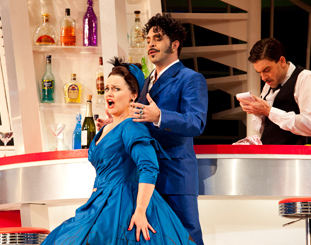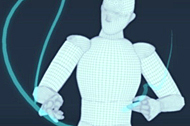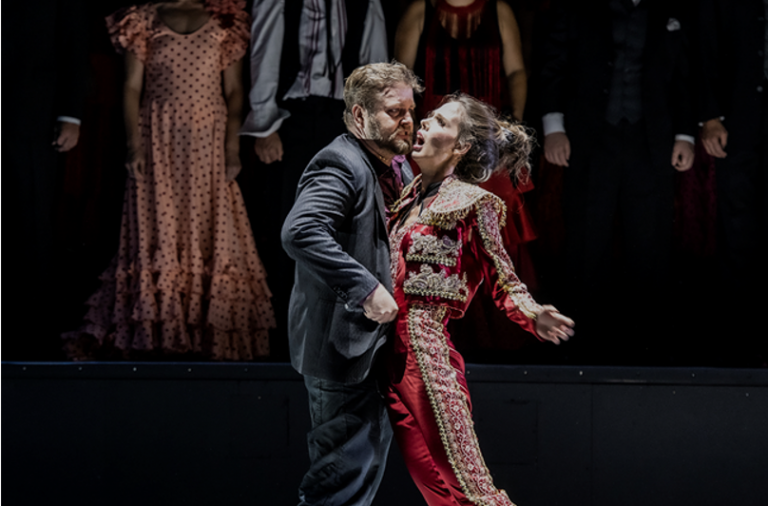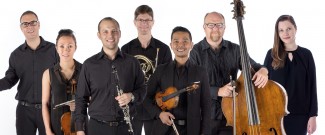Notes on memory
Performing is a curious business. It regularly throws up conundrums and contradictions and one of those is the phenomenon of memory.
Dancers develop their muscle memory from hours of rehearsal and cues from the accompaniment; memorising lines is implicit in being an actor. Solo instrumentalists almost always perform from memory. All opera singers work from memory, yet when those same soloists sing oratorio they use a score. Choral singers generally perform from a score, but Art Song is performed from memory and I have yet to experience a trio or larger ensemble perform sans music, except in the genres outside the’classical’ canon – like jazz – and music from non-Anglo cultures – like Flamenco, Gamelan orchestras and the Karnatic music of South India where long swathes of music are improvised or played from memory.
Already the numerous elements in memorisation are jostling for recognition – visual, muscular and acoustic; recall and recognition. Then there is passive memorisation – as with the Suzuki method where music is played to learners as they fall asleep. The tenet ‘practice makes perfect’ has become no less potent with time, and the scales and arpeggios that create a technical foundation in instrumental study are often the elements to creating muscle memory and patterns of fingering.
In Sydney recently for Musica Viva, were two consummate musicians, leaders in their fields, pianist Stephen Hough and clarinetist Sabine Meyer. Co-incidentally, they both commented on performing from memory.
The debate was triggered in the Q and A session following Hough’s first Sydney recital. He performed fiendishly difficult music, (like Scriabin’s Sonatas no.s 4 and 5, both in F# minor) from memory, yet his own composition broken branches, a sonata for piano in 16 movements was performed with the score.
Hough explained that as the composer, he was especially careful to demonstrate that he was not improvising the music as he played it. The work has been published and will be released on CD. It is an identifiable and recognisable work.
Secondly, he said, the works from the established repertoire are very amenable to memorisation through recordings, live performances and the sheer length of time over which they have been heard. For example, Hough said he had come to learn Beethoven’s Sonata no.14 in C# minor Quasi una fantasia opus 27 no 2 ‘Moonlight’ only very recently. Nonetheless he performed it from memory. Newer works are without this history and longevity.
Finally, he said, established repertoire is more predictable in form, modulations and patterning and therefore easier to memorise. Rules of composition were followed. Contemporary music is far more free form with less predictable patterns – the case in point being his own piano sonata with a convention defying 16 movements.
In her blog, British pianist Susan Tomes says: ” At least half of my total preparation time has been taken up with the long task of embedding the music in my memory – which for me…. means activating several different methods of remembering, from visualisation of the score to muscle memory. Understanding the structure of the music is a vital thing for me as well, when photographic memory or muscle memory lets me down”.
Clarinetist Sabine Meyer performed in Sydney with the Modigliani String Quartet. In this context using scores is de rigueur. In a recent interview she commented on the process: ” To have it safely saved in your memory, there’s a lot which happens automatically in your fingers – the second you think about it, it stops working. You really have to know it. If you are nervous and you don’t consciously know it, then you have a problem and you’re insecure. Even if you’ve played a phrase automatically a million times, and then suddenly you think about it, it doesn’t work anymore”.
“Playing from memory is a relatively new phenomenon, from the 19th century. When Clara Schumann played without music, people said, ‘Look at her! She can’t even read music! Why doesn’t she use the music?’ And now it is an inseparable part of the business. There are great artists, like Gidon Kremer, who never plays a single note by memory. Every Mozart concerto that Gidon plays, even if he’s played it a million times, he always has his music stand there. And I don’t find it anything to be ashamed of, to use the music”.
Fittingly, there was agreement with Stephen Hough on playing new music from the score. The German cellist Siegfried Palm is reputed to have said new music should always be played with the score, otherwise nobody will believe that you’re really playing the right notes. Meyer agrees : “New music is….something we’re not that used to playing from memory. I would also find that very difficult to learn a brand new work by heart. That would involve a great deal of work”.
Is using a score like performing on the trapeze with a safety net, or is it liberating to not be paperbound? It seems it is very much an individual preference. Meyer says: ” I don’t play any better when I play by heart. Perhaps some pieces – a Mozart concerto, or Debussy – you might think that you can let go more, that you are more free. But that depends entirely on the individual. If playing by memory makes you feel nervous, and that makes you play worse, what’s the point of that? You should rather put the music stand somewhere discreet nearby. Then you have the security, and you can be relaxed when you’re playing”. Tomes is of the same opinion, commenting in her blog: “It takes so long before you get to the point where you can play a recital programme from memory. And I can’t help wondering how important it really is. Some players feel freer when they play from memory. I sometimes feel that way too, but just as often I’m a little anxious, as I play, about whether my memory will hold firm”.
Pianist Zubin Kanga has performed JS Bach’s entire Goldberg Variations from memory. Yet, when he presents a recital of new works for solo piano this Friday, he will be performing with the score. “For the last couple of years I’ve been playing most of my repertoire with the score. I have a very good memory and used to play all my contemporary scores, and even chamber music, from memory. But I now think it’s unnecessary – I often have my scores largely memorised anyway and use the score as a reference point, or a reminder of particular details or fingerings. The sheer amount of new repertoire I have to learn is a factor – pianists playing the canon can keep playing their core works for years, while in contemporary music there’s always new works to learn. There’s also the factor that with mobile scores, graphic scores, highly complex scores and other special types of notation, it would be contrary to the composer’s intentions and the spirit of the piece to attempt a memorisation, since the work is all about the performer’s relationship to the notation while performing”.
“In general” he concludes, “I think audiences are more interested in the skill and creativity of the performer, than in whether the performer is using a score or not”. SdeS





